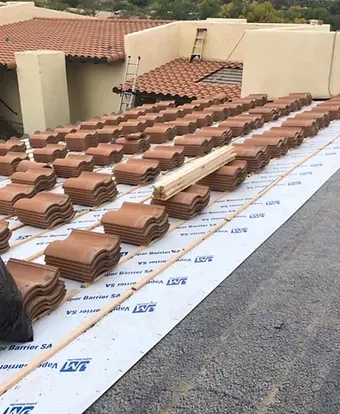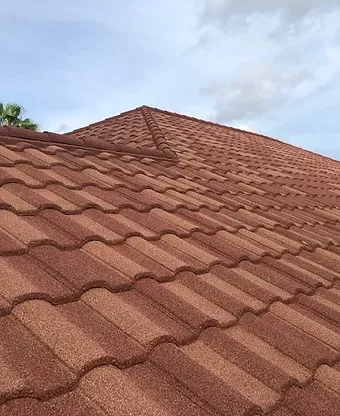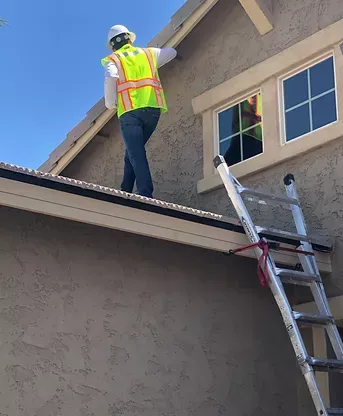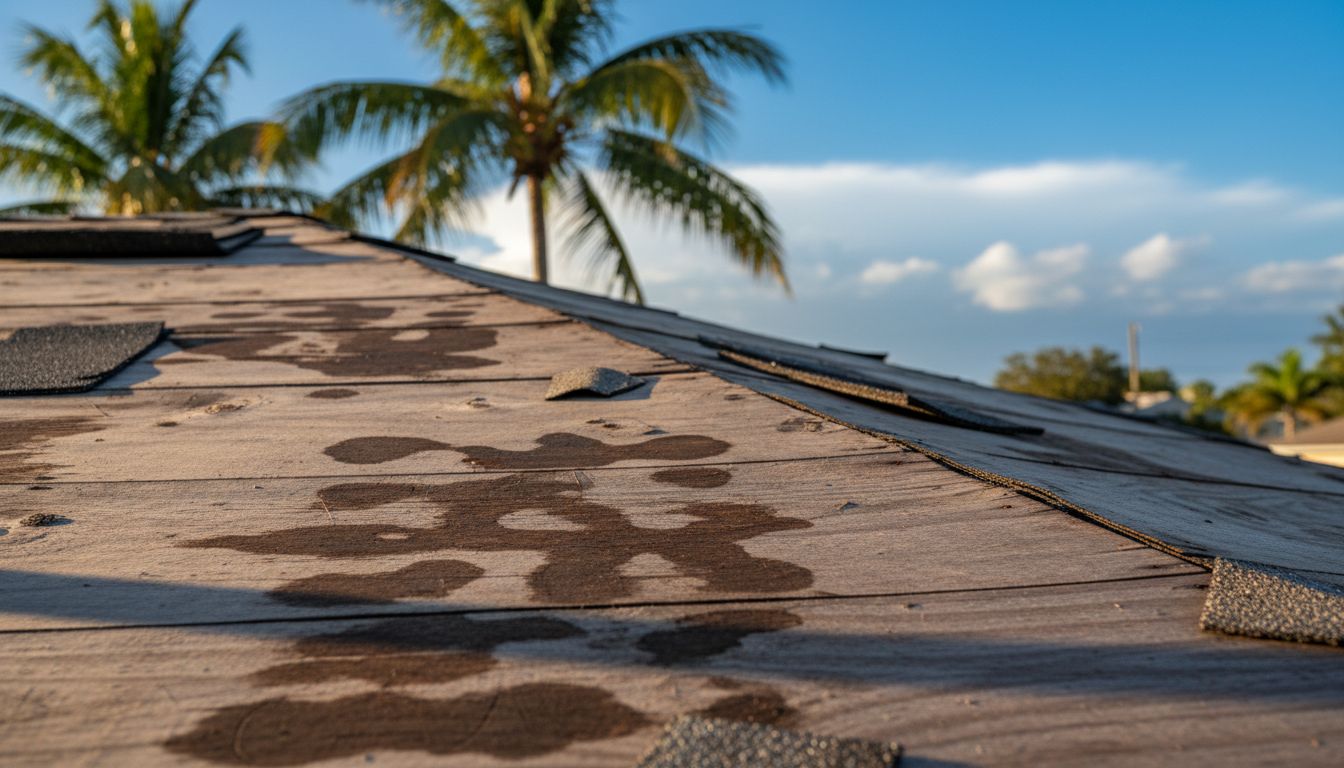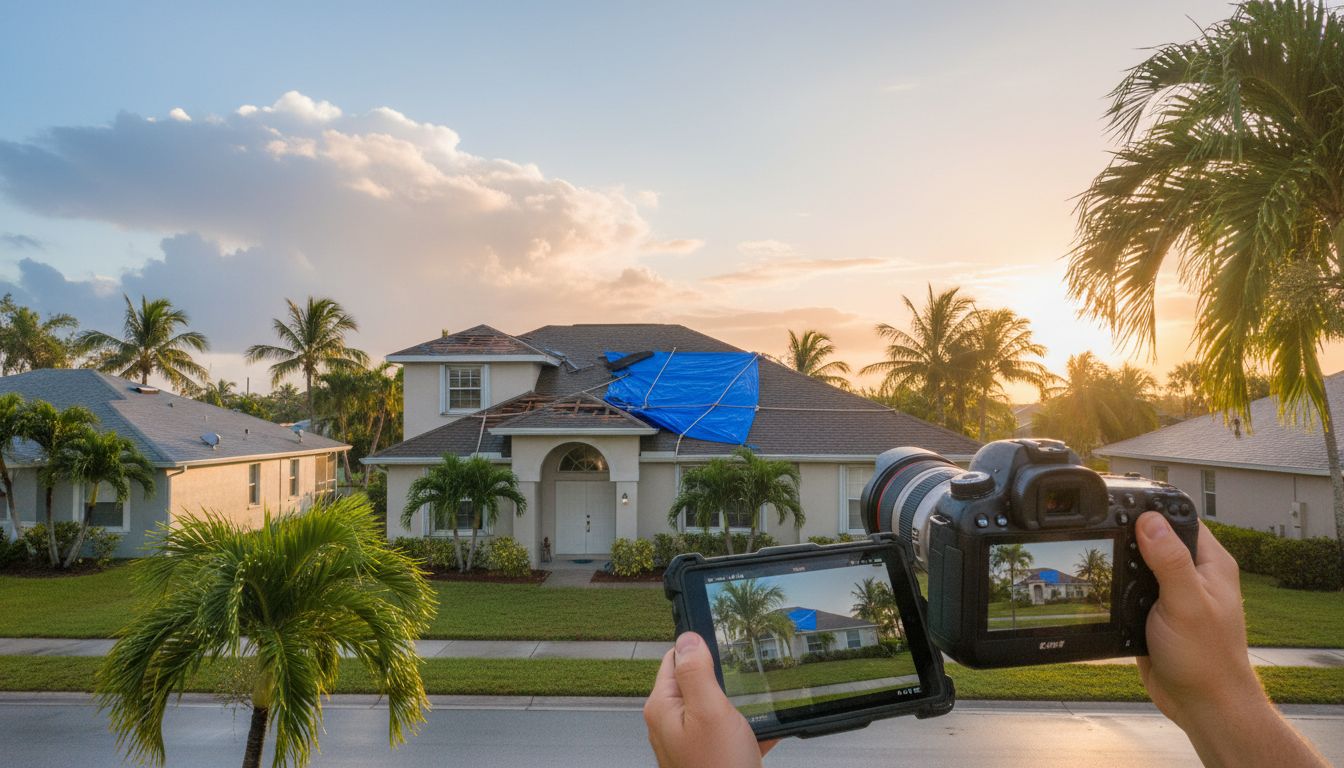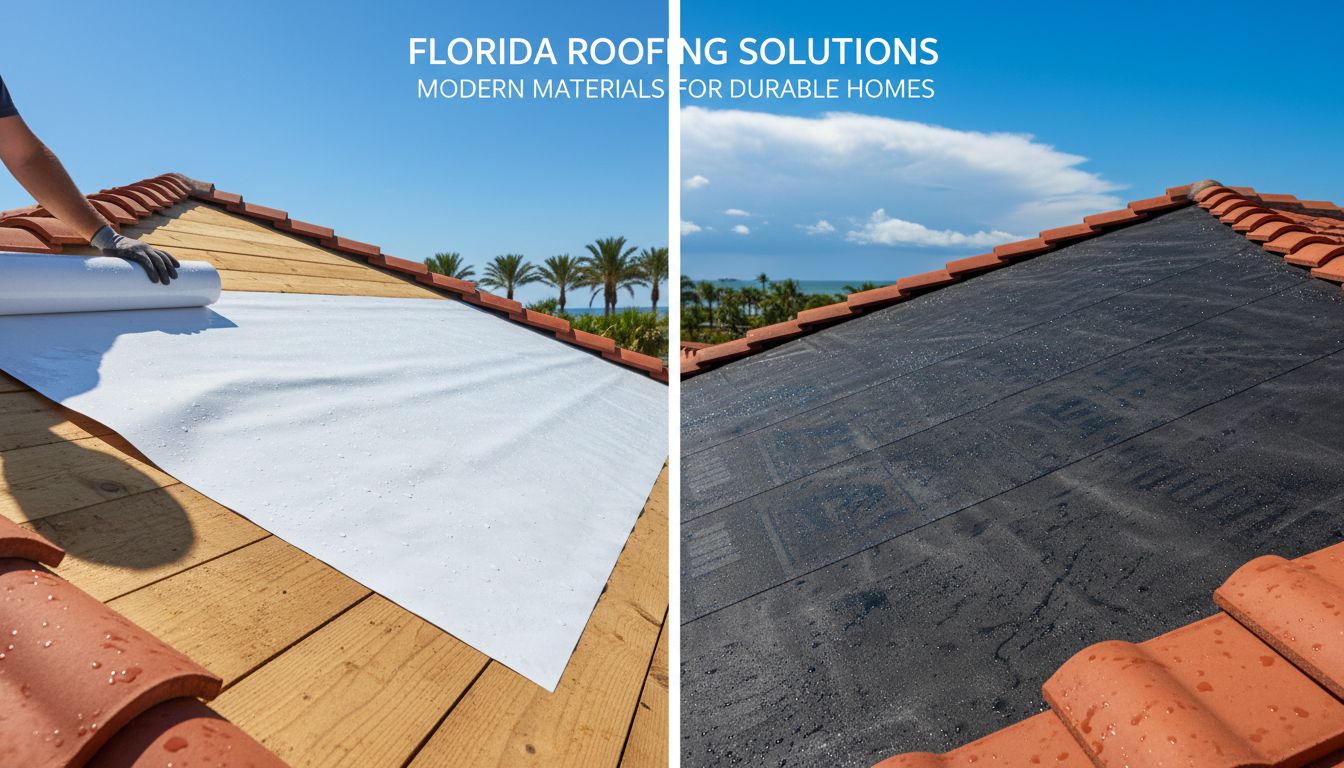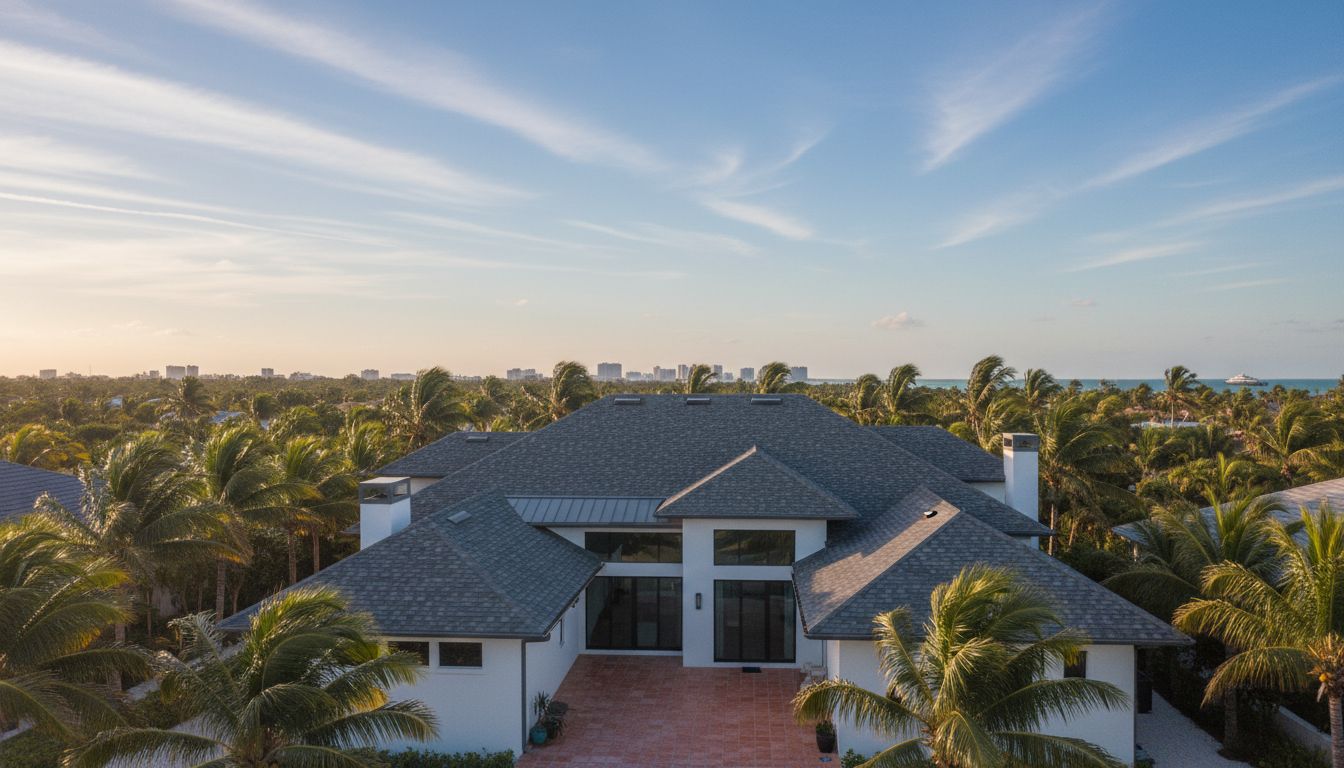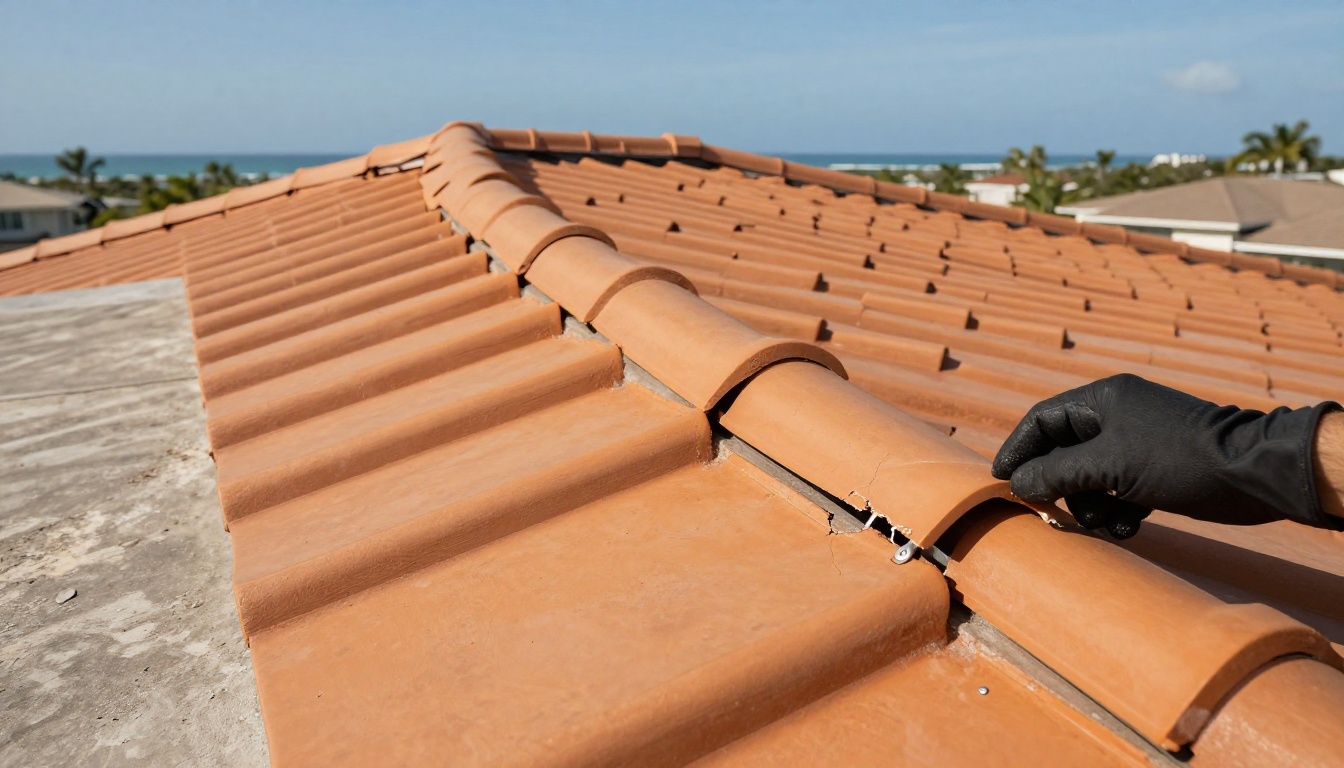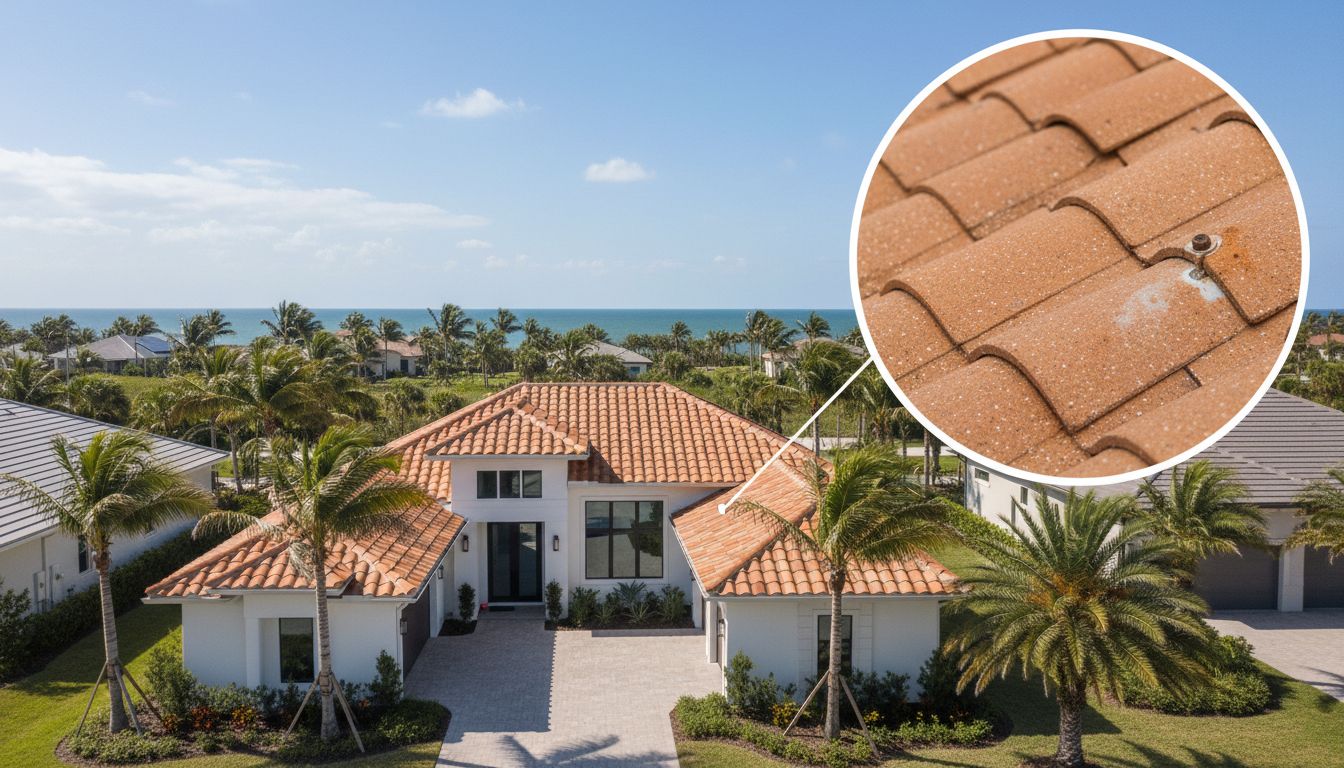How to Finance a New Roof in Southwest Florida: A Homeowner's Guide
How to Finance a New Roof in Southwest Florida: A Homeowner's Guide
Understanding Roof Replacement Costs in Southwest Florida
Replacing a roof in Southwest Florida can be a significant investment, with costs varying based on factors like materials, size, and accessibility. On average, homeowners can expect to pay between $5,000 and $15,000 for a standard asphalt shingle roof , while metal or tile roofs may range from $10,000 to $30,000 or more. The region’s climate, prone to hurricanes and heavy rains, often requires durable materials that can withstand extreme weather conditions , which can increase both material and labor costs.
In addition to material choices, the size and pitch of your roof, as well as how easy it is for contractors to access, can impact the final price. Labor rates in Southwest Florida also play a role, as skilled roofing professionals are in high demand due to frequent storm-related repairs. Understanding these factors helps homeowners set realistic expectations and budget accordingly, ensuring they choose the best option for their needs.
Why Financing a New Roof Makes Sense
Financing a new roof is a practical choice for many homeowners who want to avoid the burden of a large upfront payment. Paying for a roof replacement outright can strain even the most prepared budgets, especially when unexpected repairs arise. By financing, homeowners can spread the cost over time, preserving cash flow for other essential expenses or emergencies. This approach also allows families to address roofing issues promptly, preventing further damage that could lead to even higher costs down the road.
Another advantage of financing is the ability to invest in a high-quality roof without delay. Delaying necessary repairs or replacements can compromise your home’s safety and value, particularly in hurricane-prone areas like Southwest Florida. By opting for manageable monthly payments, homeowners can protect their property and enjoy peace of mind, knowing they’ve made a smart financial decision that aligns with their long-term goals.
Popular Roof Financing Options Available Locally
One common way to finance a new roof is through contractor-offered financing plans. Many roofing companies partner with lenders to provide flexible payment options, often featuring low or no interest for qualified applicants. These plans are convenient because the approval process is typically straightforward, and the loan terms are tailored to the project’s cost. Additionally, working directly with the contractor ensures seamless coordination between the financing and installation processes.
Home equity loans and HELOCs (home equity lines of credit) are another popular option. These allow homeowners to borrow against the equity in their homes, usually at lower interest rates compared to other types of loans. However, they require sufficient home equity and good credit scores, and there’s a risk of foreclosure if payments aren’t made. For those who prefer not to use their home as collateral, personal loans offer an alternative, though they may come with higher interest rates depending on creditworthiness.
Credit cards can also be used for smaller projects, but their high-interest rates make them less ideal for larger expenses like roof replacements. Alternatively, government-backed programs such as PACE (Property Assessed Clean Energy) financing provide an innovative solution by allowing homeowners to repay the cost through their property taxes. This option is particularly appealing for energy-efficient upgrades. FHA Title I loans are another avenue, designed specifically for home improvements and accessible to borrowers with moderate credit scores.
Each financing method has its pros and cons, so it’s important to evaluate your financial situation carefully. Consider factors like interest rates, repayment terms, and eligibility requirements before making a decision. Consulting with local experts in Southwest Florida can help you navigate these options and find the one that best suits your needs.
Eligibility Criteria for Roof Financing
Approval for roof financing typically depends on several key factors, including your credit score, income level, and the condition of your current roof. Lenders generally look for a minimum credit score of 620 to 680, though some options may be available for those with lower scores. Income verification is also crucial, as lenders need assurance that you can comfortably manage monthly payments. If you’re considering a home equity loan or HELOC, having sufficient equity in your home is another requirement.
Different financing types may have unique eligibility criteria. For example, PACE financing focuses more on the property’s value and the specific improvements being made rather than solely on the borrower’s credit history. It’s important to understand these nuances and work with lenders who specialize in roof financing in Southwest Florida. By doing so, you can increase your chances of securing favorable terms and ensuring a smooth application process.
Steps to Apply for Roof Financing
The first step in applying for roof financing is estimating the total cost of your project. This involves getting detailed quotes from multiple contractors , factoring in materials, labor, permits, and any additional fees. Once you have a clear idea of the expense, compare financing offers from different providers, paying close attention to interest rates, repayment terms, and any hidden fees. Preparing necessary documents, such as proof of income, tax returns, and a copy of your credit report, will streamline the application process.
Many contractors in Southwest Florida are experienced in guiding homeowners through the financing process, offering assistance with applications and connecting clients with trusted lenders. After submitting your application, stay proactive by following up with the lender and addressing any additional requests promptly. Taking these steps ensures you secure the best possible deal and move forward with your roof replacement project confidently.
Comparing Local Roof Financing Providers
When evaluating roof financing options, transparency is key. Look for providers that clearly outline their terms, including interest rates, repayment schedules, and any associated fees. Reputable contractors in Southwest Florida often partner with established lenders, ensuring reliability and fair practices. Be wary of companies that pressure you into quick decisions or fail to disclose all costs upfront, as this could indicate hidden agendas or unfavorable terms.
A trustworthy contractor will prioritize customer satisfaction, offering robust after-sales support and warranties on both materials and workmanship. Signs of a reputable provider include positive reviews , proper licensing, and membership in industry associations. By taking the time to research and compare local options, you can find a financing program that aligns with your needs and ensures a successful roof replacement experience.
Government Programs and Grants for Roof Replacement
Southwest Florida homeowners have access to various government programs and grants that can help offset the cost of a new roof. One notable option is PACE financing, which allows property owners to fund energy-efficient upgrades , including roofs, and repay the amount through their property taxes. FEMA aid is another resource, providing financial assistance for disaster recovery, including repairs caused by hurricanes or severe storms. These programs aim to reduce the financial burden on homeowners while promoting resilience against future weather events.
Local initiatives, such as grants for low-income households, may also be available to assist with roof replacements. To take advantage of these opportunities, homeowners should research eligibility requirements and deadlines. Working with a knowledgeable contractor can simplify the process, as they often have insights into applicable programs and can guide you through the application steps.
Roof Insurance Coverage: What to Know Before Financing
Before pursuing financing, it’s essential to review your homeowner’s insurance policy to determine what coverage is available for roof replacement. In Southwest Florida, where hurricanes and tropical storms are common, many policies cover damage caused by windstorms or hail. However, coverage limits and exclusions vary, so understanding your policy’s specifics is critical. For instance, older roofs may only qualify for partial reimbursement, while newer installations might receive full replacement costs.
It’s also important to distinguish between maintenance-related claims and those stemming from storm damage. Regular wear and tear are typically not covered, meaning routine repairs must be handled out-of-pocket. By clarifying these details with your insurer, you can avoid surprises and make informed decisions about whether financing is necessary or if insurance will suffice for your roofing needs.
Tips to Improve Your Chances of Loan Approval
Improving your chances of loan approval starts with boosting your credit score. Paying down existing debts, correcting errors on your credit report, and maintaining consistent payments can significantly enhance your financial profile. Gathering necessary documents, such as recent pay stubs, bank statements, and tax returns, demonstrates financial responsibility and expedites the approval process. If needed, consider adding a co-borrower with strong credit to strengthen your application.
Another effective strategy is to shop around and apply for pre-approval with multiple lenders. This not only increases your chances of finding competitive terms but also gives you leverage during negotiations. Avoid applying for new credit cards or making major purchases before finalizing your roof financing, as these actions can negatively impact your credit score. By preparing thoroughly and presenting yourself as a reliable borrower, you’ll position yourself for success.
Evaluating the Long-Term Financial Impact
Financing a new roof can have lasting effects on your family’s budget and overall financial health. While monthly payments add to your expenses, investing in a durable, energy-efficient roof can lead to savings over time. For example, modern roofing materials often improve insulation, reducing heating and cooling costs. Additionally, a new roof enhances your home’s curb appeal and resale value, potentially yielding a strong return on investment when it comes time to sell.
However, it’s crucial to weigh the benefits against the potential drawbacks, such as increased debt obligations or reduced home equity if using secured loans. Planning ahead and choosing a financing plan that fits within your means ensures you reap the advantages without compromising your financial stability. With careful consideration, a new roof can become a valuable asset that protects your home and contributes to long-term prosperity.
Common Mistakes to Avoid When Financing a Roof
One of the biggest mistakes homeowners make when financing a roof is failing to read the fine print. Hidden fees, variable interest rates, or inflexible repayment terms can turn an affordable loan into a financial burden. Always ask questions and clarify any ambiguities before signing agreements. Another pitfall is not comparing multiple providers; relying solely on one quote can result in missed opportunities for better rates or terms.
Borrowing more than necessary is another common error. Some homeowners opt for larger loans to cover unrelated expenses, increasing their debt load unnecessarily. Staying focused on the actual cost of the roof replacement and sticking to your budget prevents overspending. By avoiding these pitfalls and approaching financing with diligence, you can secure a deal that works for you without jeopardizing your financial future.
Frequently Asked Questions About Roof Financing in Southwest Florida
How quickly can I get approved for roof financing?
Approval timelines for roof financing vary depending on the lender and the complexity of your application. Typically, online lenders and contractor-offered plans provide faster approvals, sometimes within a day or two, while traditional banks may take longer. Factors like your credit score, income documentation, and the completeness of your application can influence the speed of the process.
Is a down payment required for roof financing in SW Florida?
Down payment requirements depend on the type of financing you choose. Some contractor-offered plans and government-backed loans, such as PACE financing, may not require a down payment. However, personal loans or home equity loans often do. Zero-down options are available but may come with higher interest rates, so it’s wise to compare offers carefully.
Will financing a roof affect my home’s value?
Financing a roof can positively impact your home’s value by enhancing its appearance, durability, and energy efficiency. However, certain financing methods, like PACE loans, attach a lien to your property, which could affect marketability during a sale. Prospective buyers may need to assume responsibility for the remaining balance, so it’s important to disclose this information upfront.
Are there credit score minimums for roof loans?
Most roof loans require a minimum credit score of 620 to 680, though exact thresholds vary by lender. Borrowers with lower scores may still qualify for secured loans, such as home equity loans, or explore alternative options like co-signing with someone with stronger credit. Exploring multiple lenders increases your chances of finding a suitable match.
What happens if I sell my home before the roof is paid off?
If you financed your roof through a secured loan, such as a home equity loan or PACE financing, the remaining balance typically transfers to the new owner upon selling your home. Unsecured loans, like personal loans, remain your responsibility regardless of the sale. It’s important to discuss this aspect with your lender and real estate agent to ensure a smooth transaction.
Conclusion
Financing a new roof in Southwest Florida doesn’t have to be overwhelming. With a variety of options available, homeowners can find solutions tailored to their financial situations while protecting their most valuable asset. Whether you choose contractor-offered plans, home equity loans, or government programs, preparation is key to securing the best deal. Understanding your budget, researching providers, and exploring all avenues empowers you to make informed decisions that benefit your family and property.
Don’t wait until minor roof issues escalate into costly emergencies—act now to safeguard your home. Use this guide as a checklist to navigate the financing process, and consult with trusted roofing professionals in Southwest Florida. By leveraging available resources and expertise, you can ensure your home remains safe, stylish, and resilient for years to come.
Take the first step today by reaching out to local experts who can help you explore financing options and begin your journey toward a secure and beautiful home.
